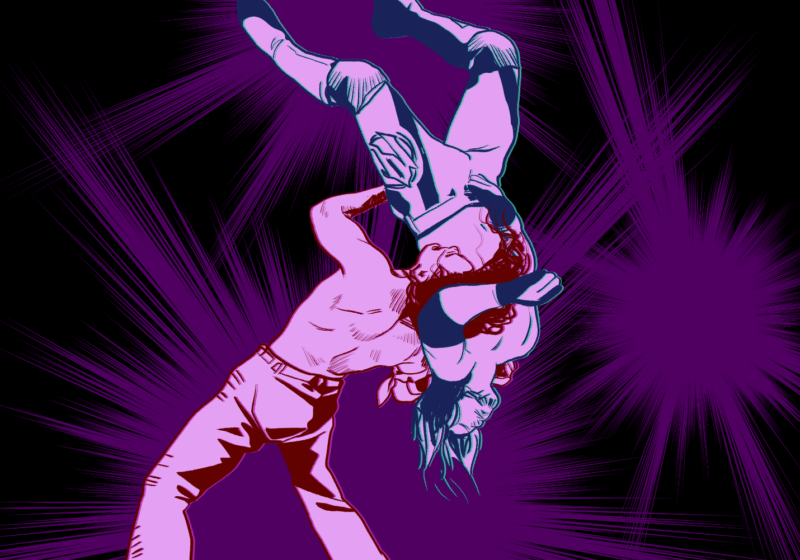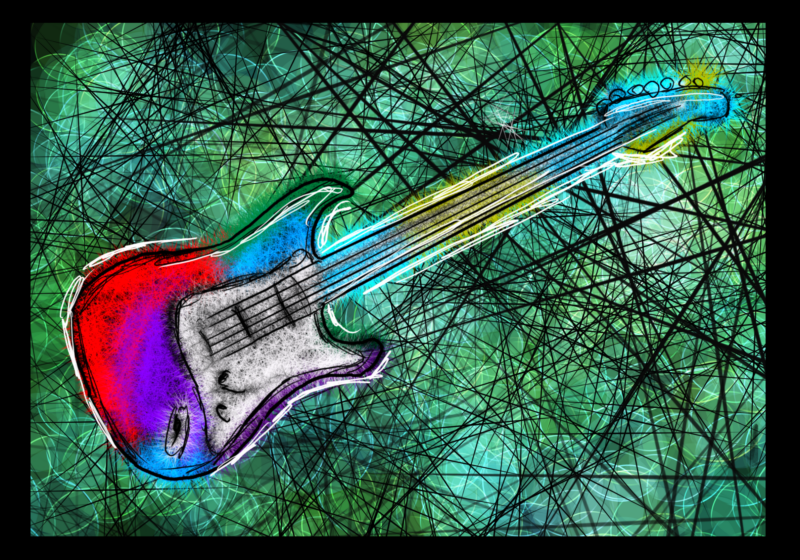I don’t think I’ve ever been as excited about Mondays as I was back in elementary school. They meant I could flip my TV on to WWE RAW at 8 p.m. sharp and watch grown men in tights smash folding chairs into each other’s faces for three hours. What’s not to love?
Now, of course, even my 8-year-old self knew deep down that all of it was staged. As much as I may have wanted Triple H to feel every ounce of pain from The Undertaker’s sidewalk slam, I knew he didn’t. But at the same time, for those three hours, everything felt so real. Those punches were actually being thrown, those legs were actually being broken, those facebusters were actually busting faces, and those wrestlers were actually being fearless.
Recently, while I was hanging out with some friends, we turned on a few WWE reruns for old times’ sake. I’m not sure what I was expecting, but all the matches seemed significantly less thrilling and electric than when I was in elementary school. The punches looked more exaggerated, the knock-outs looked less believable, and the body slams looked less painful.
As silly as it may sound, I’d be lying if I said I didn’t feel a twinge of sadness at these realizations — this shifted perspective on something that made me so ecstatic as a child seemed to be just one more reminder that the simplicity of my youth was fading away. When we’re young, we tend to see the world through rose-tinted glasses — everything around us seems more interesting, engaging, and impressive. In contrast, I’ve noticed that the more we grow older, the more we concern ourselves with realism. We’re expected to set realistic career and life goals and keep our heads in the “real world.” This notion is so aggressively socialized in us, we struggle to separate ourselves from it even for entertainment’s sake. We can’t sit down and easily enjoy something like a WWE match because it just doesn’t feel “real.” And of course, an undeniable sense of self-doubt goes hand in hand with this involuntary immersion in realism. We question whether the goals we set are actually achievable; whether we can realistically become the person we want to be.
However, amidst my having an existential crisis while watching Shane McMahon get his face beat to a pulp with a ladder, I had another realization (this one a bit more hopeful). Although self-doubt is an inevitable part of adulthood, these wrestlers serve as a perfect illustration of how to overcome that. In many ways, they are the embodiment of the phrase “fake it till you make it.” All of their punches, chokeslams, chair shots, and elbow drops are either exaggerated or completely fake, but their success isn’t. They’re still famous and extremely well-paid individuals despite the phoniness they have to endure to get to that level. Crowds still cheer their names, people still buy their action figures, and they’re still heroes in the eyes of kids (and even some adults, sad as that may be). All that is very real.
Although many of us won’t ever be able to perform an absolutely devastating Batista Bomb on a 300-pound male, I still think we can learn a thing or two from professional wrestlers. If they can “fake” their way to achievement, why can’t we? Now, I’m certainly not talking about lying, cheating, and backstabbing in order to be as successful as humanly possible. What I am talking about is giving yourself what might feel like unearned confidence: presenting yourself in a manner that imitates achievement and boldness, even if it doesn’t feel natural. If you don’t feel confident, walk with your shoulders back and your head up, exactly how a confident person would waltz into a room. If you aren’t the most talented in any given field, just try and pretend that you are. Through habitual and earnest actions, success will eventually manifest. It may sound simple and ineffective, but I would argue that almost 99% of virtually any achievement is mental. The body won’t go and the action won’t happen unless your mind is there to back it up. Conversely, if you believe that you’re going to fail, then you will indeed fail.
I didn’t intend for this article to turn into a TED Talk when I sat down to write it, but I think it’s important to remind ourselves of how powerful our minds are in dictating our achievements and abilities. So whether you’re dropping soul-crushing Gutwrench Powerbombs or interviewing for an internship, make sure to fake it till you make it.





